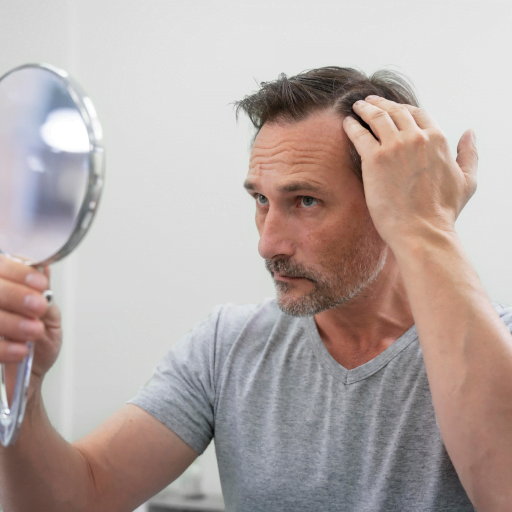



Do you feel like your hair is a mess? It can seem disconcerting at first, but it is normal to lose some hair each month. A person will shed at least 80 strands of scalp hair each day.
However, not all hair loss is normal. If you feel like you are losing too much hair, a variety of causes could be the problem. You could have alopecia, which is a disease associated with hair loss. Some illnesses or allergies lead to the body shedding hair to fight back. Other times, it is just a question of getting older or genetics. Only a doctor can help you pinpoint the source of your hair loss concerns.
You can even start picking up some of the clues yourself. When you lose hair, look at the strands. If full hair strands are falling out with the spherical ends still attached, then your problem is likely hereditary or biological. Some of those causes may be genetics, pregnancy, hormonal imbalances, and reactions to certain medications.
On the other hand, broken strands and shattered ends are hair loss symptoms resulting from other factors. These factors can include:
Hair loss can be a stressful experience, but it doesn’t have to break your spirit. Hair restoration treatments can help you prevent and decrease hair loss.
Our New York City hair transplant specialists can offer you help for hair loss. We offer a variety of treatments that help you look and feel like yourself again. You could be experiencing hair loss due to any reason. Why not let us diagnose the problem and create a custom treatment plan to address it? Get back the look you crave.
Have you recently experienced a lot of hair loss?
Our New York City (NYC) hair transplant specialists can assist you. We have a variety of hair restoration solutions to help. We will identify the root cause of your hair loss to develop a personalized treatment plan.
As you start your hair loss restoration journey, learn about the most common causes.